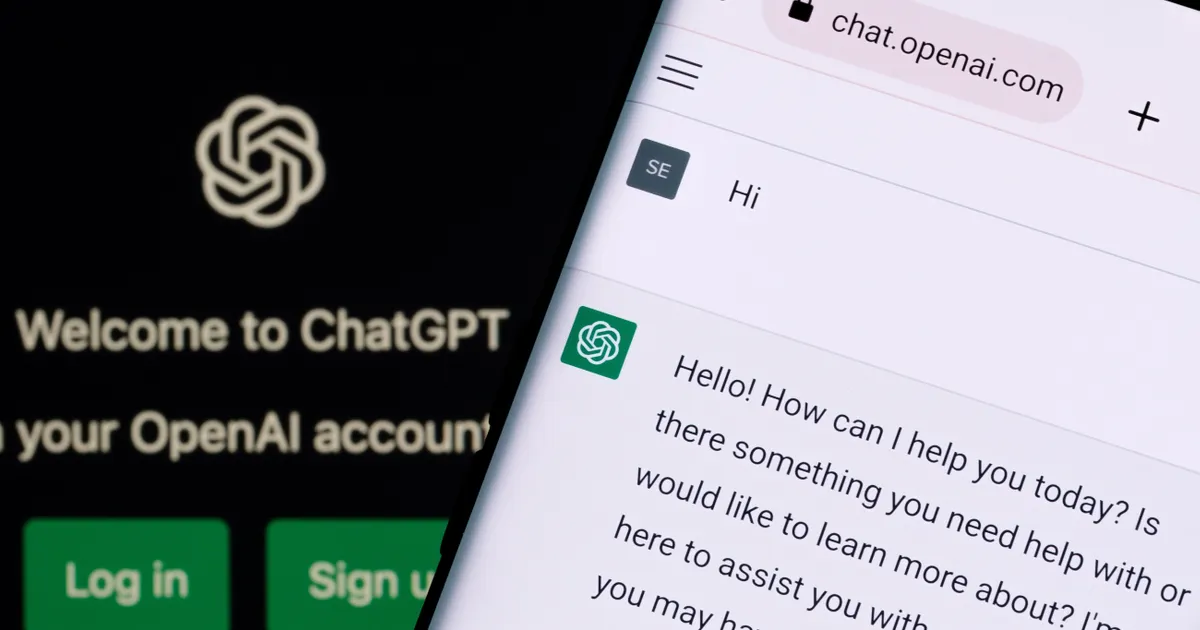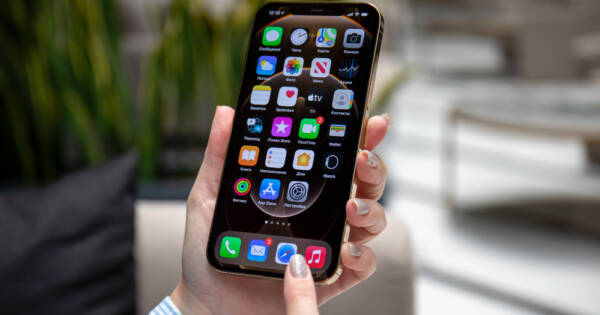ChatGPT has dominated the news cycle in recent weeks. The innovative, mysterious, and seemingly all-powerful AI technology has captured all of our imaginations, seemingly overnight. In spite of all of that attention, most Americans know very little about it, or the research company behind the project.
In truth, it’s not that hard to understand. We can’t predict the future of ChatGPT, and nobody is expecting you to be able to do that either. But, after today, you should be able to talk about it with confidence and use it with precision. What are you waiting for? Let’s begin your AI-assisted journey with this beginner’s guide to ChatGPT.
 Shutterstock: Ascannio
Shutterstock: AscannioAn Introduction to OpenAI
An American artificial intelligence research company, OpenAI was founded in 2015 with the goal of researching and developing friendly AI tools that benefit all of humanity.1 The company is headquartered in San Francisco and is led by founder and CEO Sam Altman.
The AI chat bot might be the company’s first product to earn household name status, but the research company doesn’t have all of its eggs in the ChatGPT basket. They’ve been busy, and have already gone public with much of their work on two other potentially world changing products.
Whisper is an automatic speech recognition tool capable of revolutionizing translation, transcription, and more.2
Dall-E 2 uses a comprehensive understanding of the relationship between images and text to create art and realistic images from text. It can make realistic edits to existing images too.3
Though the public has a general understanding of ChatGPT, Whisper, and Dall-E 2, it’s important to note that each is still in active development. The effectiveness of each project could improve dramatically and their practical uses may evolve over time.
What is ChatGPT?
Now, for the reason we’re all here: ChatGPT. It’s a language generation software that uses user-inputted questions to do all sorts of language-based tasks. If you can ask a question, you can use ChatGPT, which is part of the new tech’s appeal.
The AI-assistance tech generated a staggering amount of unique users in just a couple of months. That growth isn’t showing signs of slowing down either. More people are using it every day, and more uses for the innovative tool are being discovered as we speak.
In its current stage, ChatGPT can be used to:
- Write code
- Debug code
- Explain complex topics in language that’s easy to
- understand
- Brainstorm new ideas
- Write long-form text including e-mails, essays, blogs, and ad copy
- Write prose and poetry in a variety of styles, on virtually any topic
- Grade essays
It seems like the practicality of ChatGPT is only limited to the user’s imagination. Students can aid with their homework, journalists can use it to cut down on research time, and office workers can use it to automate simple tasks and help with emails. It sounds cliche to say the sky’s the limit, but that really does seem to be the case here.
What Are Its Limitations?
Using it for the first time can be jarring. It appears to know the answers to every question you can think of, and can complete a dazzling variety of complex tasks like long form exposition, creative writing, and coding.
ChatGPT does have its limitations, and OpenAI isn’t hiding them either. A few of the known limitations include:
- The answers may sound real, but may contain incorrect information or be altogether nonsensical.
- It tends to repeat itself, and provide answers that are longer than necessary.
- It is trained to refuse inappropriate requests, though it may sometimes respond or show bias.
It’s an impressive tool in spite of those limitations, and performance is expected to improve as new iterations of ChatGPT roll out over time.
ChatGPT Plus
OpenAI has already begun monetizing their exciting new platform. For $20 a month, users can sign up for ChatGPT Plus and take advantage of a number of premium features including faster response times, general access during peak times, and access to new features and improvements as they are rolled out.4
Free users are still encouraged to use the platform, and OpenAI hasn’t announced plans to paywall the service completely. Instead, the premium subscription is meant to fund ongoing development and help ensure that the free version remains available to everyone.
Power In Your Hands
See? It may be powerful, and it could fundamentally reshape our relationship with computers forever, but ChatGPT isn’t too hard to understand. It’s a super-powered search engine that could greatly enhance our ability to find and understand new information. It may even free us from the grunt work of typing long-form emails too.
OpenAI isn’t the only company actively exploring AI assistance technology either. Industry giants Google and Baidu have already made their presence in the sector known.5 We’ll be watching it all go down, and doing our best to make sense out of every emerging technology we see.
